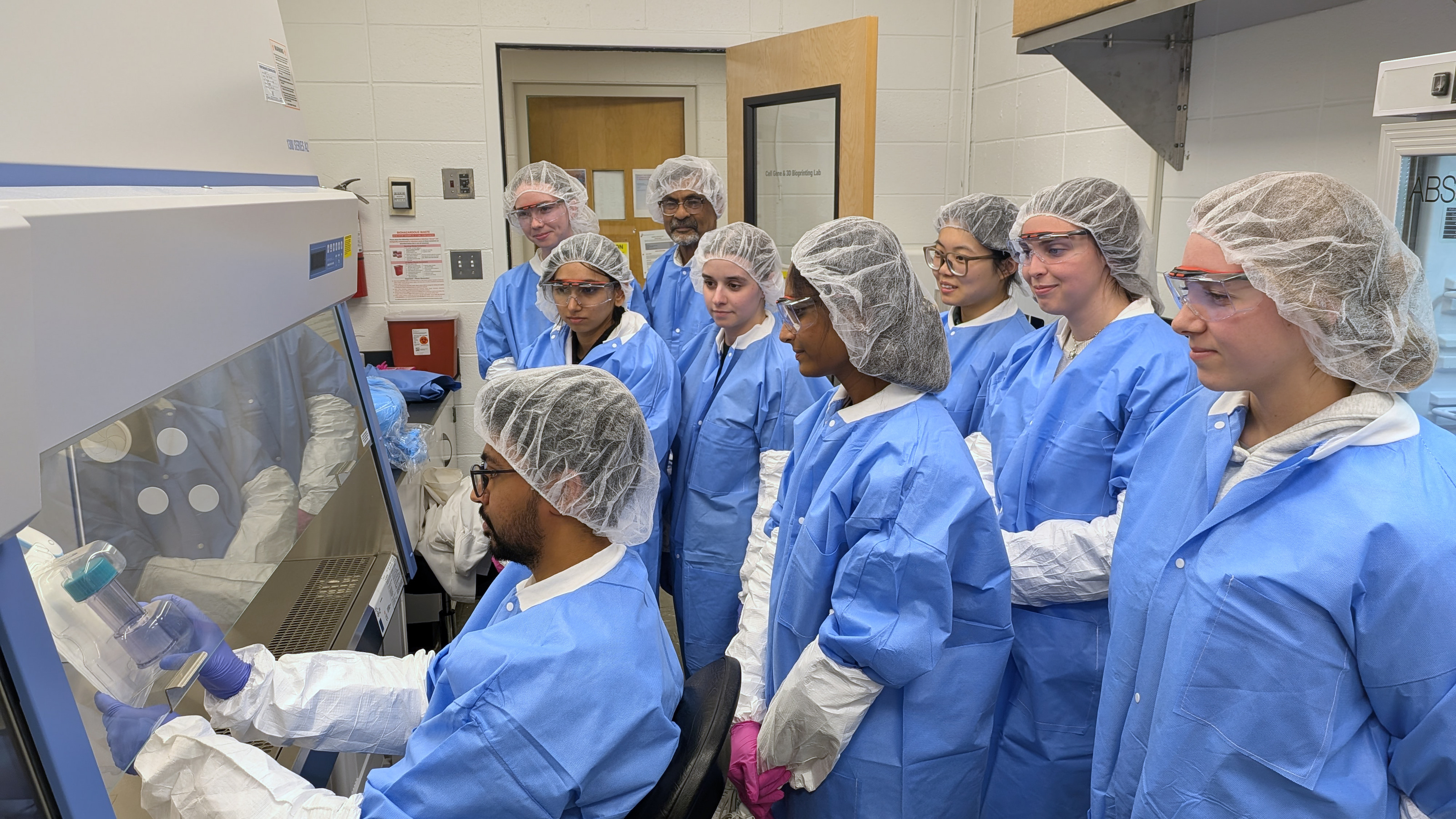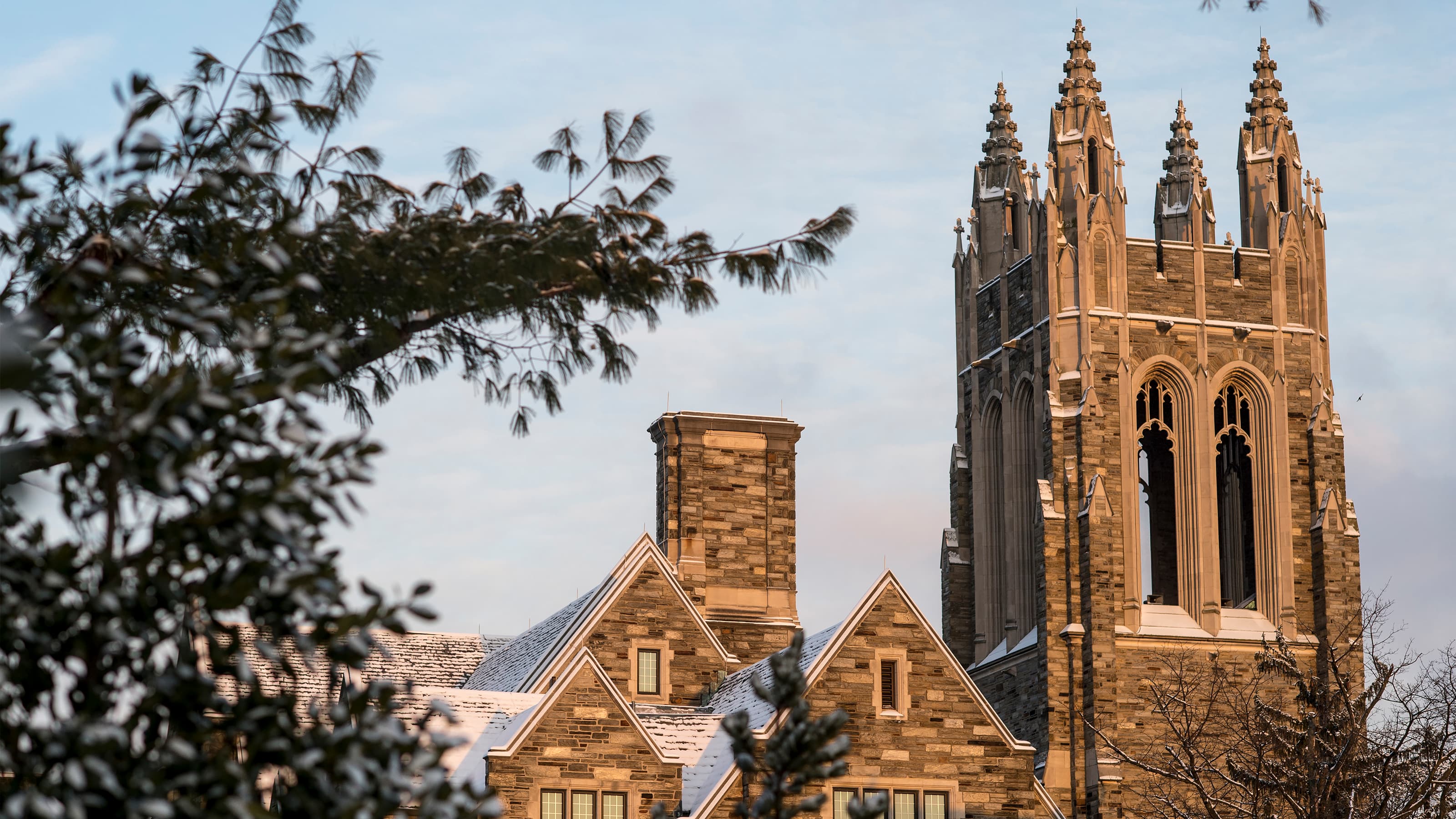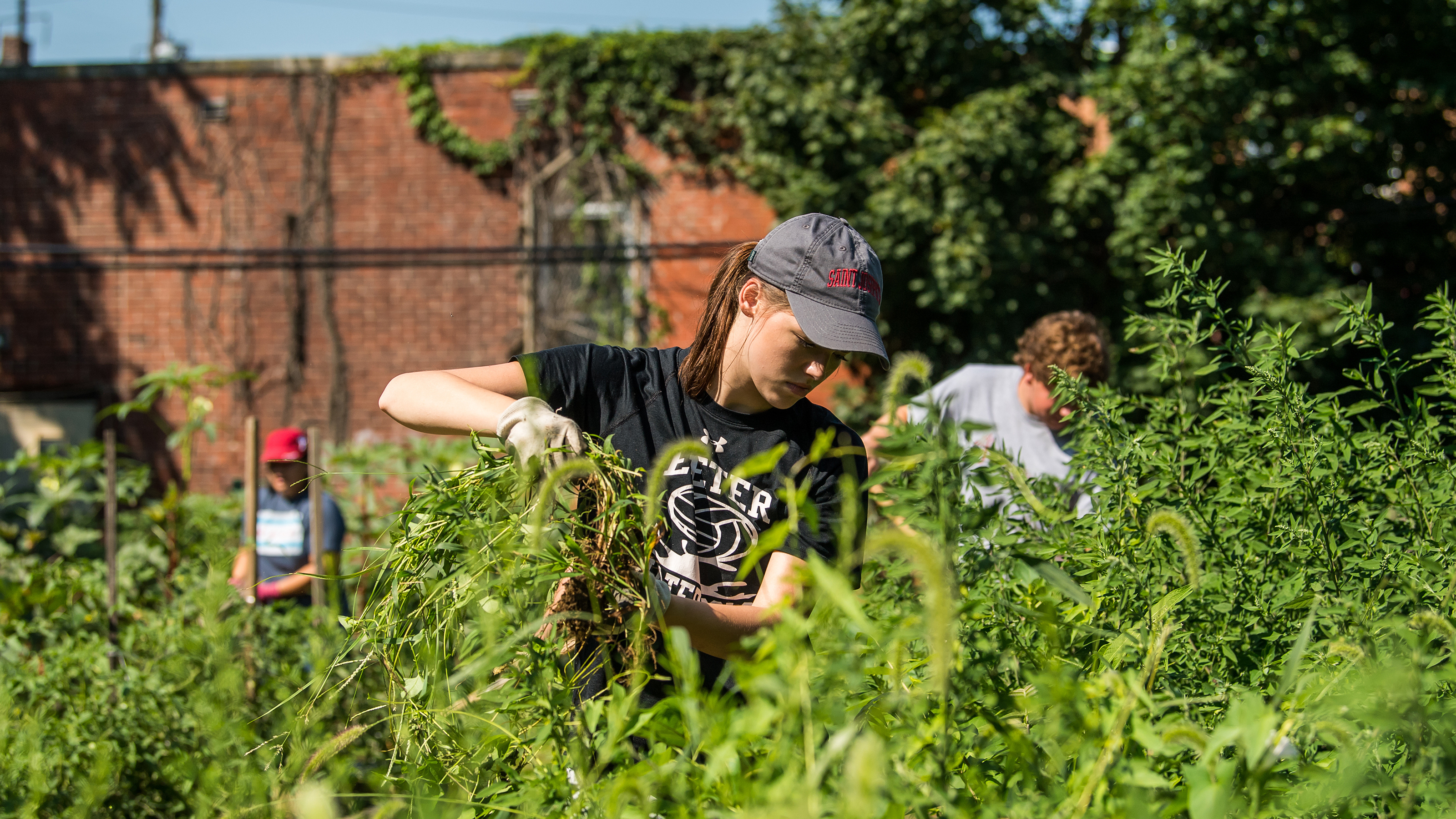Prevention Academy Expands into Montgomery County with New Grant
With a new $1.9 million grant and more than 10,000 students served so far, the Saint Joseph’s program is extending its model of prevention to Montgomery County schools.

Saint Joseph’s University’s Prevention Academy is expanding into Montgomery County, thanks to a new $1.9 million grant from the county’s opioid settlement funds.
The Academy, designed to equip adolescents and their caregivers with the knowledge and tools to make healthy decisions regarding substance use, has experienced rapid growth since its launch in 2024. The program has reached more than 10,300 students across 26 schools in Delaware County, launched the “Choices Unfiltered” podcast and introduced the EmpowerED Resource Library — a digital hub of prevention-focused resources.
The expansion will deliver these same tools to even more students, caregivers and communities, empowering them to make informed choices, ultimately keeping healthy kids healthy.
It’s really important for students to understand the why and not just be told, ‘Don’t do it.'
Taylor Moran
Assistant Director of Saint Joseph's Prevention Academy“Prevention is a culture,” says Kiersten Simon, MEd ’08, CAADC, executive director of Prevention Academy. “It’s a climate. When you can get adults involved, the entire health and wellness of a school community flourishes. We have seen that firsthand this past year.”
The data backs that up. Since January, more than 1,100 students have shared feedback about their experience with Prevention Academy specialists, highlighting both the quality of instruction and the lasting impression it leaves.
“[The program] has been so well received by the people we work with, whether that’s school administrators, teachers or the students themselves,” says Allison Dukes, PhD, assistant professor of mental health counseling and faculty director of Prevention Academy.
One eighth-grade student’s feedback stuck with Taylor Moran, assistant director of Prevention Academy. While the student had heard typical messaging about drugs and alcohol before, they said the Academy was the first to explain why prevention matters.
“It’s really important for students to understand the why and not just be told, ‘Don’t do it,’” says Moran. “We’re giving them the information they need to make their own informed choices. It’s powerful to see that ‘light bulb’ moment, not just for that student, but for the adolescents around them too.”
Much of the program’s success lies in its people.
Saint Joseph’s prevention specialists tend to be hired from the same communities they serve. In Delaware County, many grew up or still live in the area. The same approach is guiding the program’s expansion into Montgomery County.
As the Academy moves into Montgomery County, it will partner with the county’s Department of Health and Human Services. Within the department, its Office of Drug & Alcohol offers a full continuum of care — from prevention and early intervention to treatment and recovery support.
“A lot of adults in these communities are raising their hands, wanting to be a part of something really positive,” says Joshua Power, BS ’05, EdD ’16, dean of the School of Education and Human Development. “They are committing a lot of time and talent, learning how to do this work well and impacting young people.”
###
Leading with Compassion: Saint Joseph’s Role in Addressing Substance Use
Saint Joseph’s University is committed to a mission-aligned, holistic approach to substance use prevention, treatment and recovery. Rooted in its Jesuit identity and the principle of cura personalis, or care for the whole person, the University supports individuals across the full continuum of care through education, research, direct service and community partnerships.
Through Saint Joseph’s Prevention Academy, K–12 students and their caregivers gain the knowledge and tools needed to make healthy decisions. Complementing this education strategy, the University’s Center for Addiction and Recovery Education (CARE) trains first responders, conducts research and mobilizes community partners, while the Addictions Graduate Educational Certificate program prepares future certified addiction counselors to serve in a variety of clinical and community settings.
Saint Joseph's collegiate recovery efforts — including the Collegiate Recovery Program and the region’s first Recovery Residence at Hogan Hall — offer structure and community for students pursuing recovery and academic success. Beyond campus, the Institute of Clinical Bioethics’ Kensington Health Promoter program delivers critical services to individuals experiencing addiction and homelessness in some of Philadelphia’s most underserved neighborhoods.
Together, these initiatives position Saint Joseph’s as a leader in substance use prevention, treatment and recovery — advancing public health while embodying the University’s Jesuit mission to serve others with compassion and dignity.



